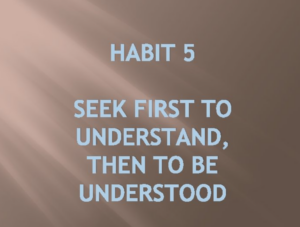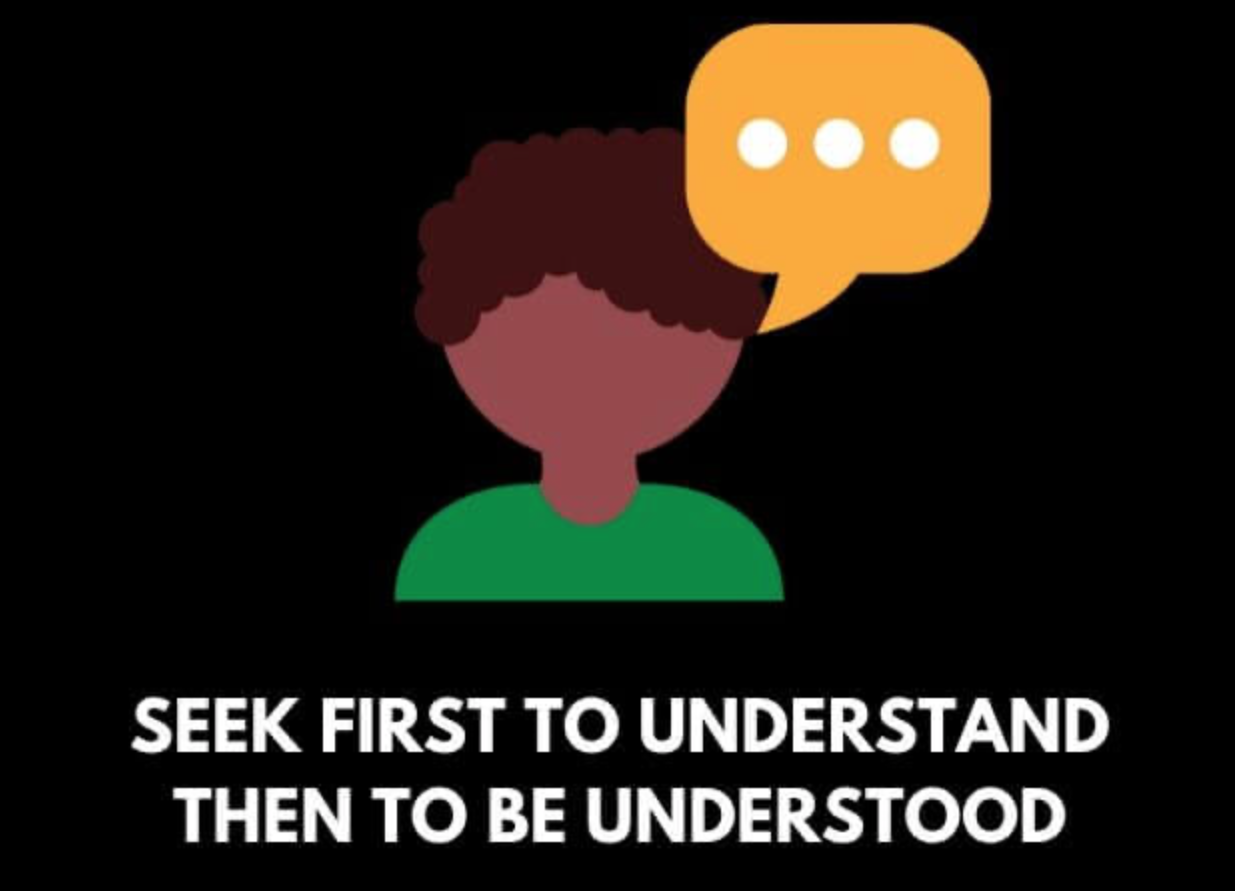
How many times has something really frustrating happened? Maybe someone made a decision that leaves you asking yourself, ‘what in the world?’. You stew on this decision, and it really rattles you. Why would the person think this way, or make this kind of decision? This has happened to me many times both in my personal, and professional life. I will say the most humbling aspect of this habit is when I started calming myself down more, and actually listening to the person. What makes them make those decisions? What makes them operate this way? I immediately start to learn that my own idea of what I THOUGHT was going on was actually the exact opposite.
This one really shows in dealing with people. I also see this in the dating world a lot. Everyone has their own fears, their own insecurities, their own past that has them react and handle things the way they do. Not saying it completely diminishes what happened, but it leaves you walking away at least understanding more about this person. It’s like an instant chill pill.
The book talks about how in many of these scenarios (dealing with interpersonal relationships), we at first seek to be understood. We do the talking to explain why something should be a certain way, or what our thought is. The person on the receiving end sits there, already irritable feeling not heard. Great, they heard your point of view. Did that resolve anything? Maybe. Maybe it gave them an idea of where you’re coming from. However, if you listen intently first, you might be able to guide the conversation differently. You might be able to redirect your response that will help build the relationship versus digging yourself in a emotional reactive hole.
So- here is the tactic the book uses to help make you a better listener. Lets say you start listening more first. What happens? You listen, maybe you disagree with what they’re saying. Maybe you agree with what they’re saying. The tactic next is to probe, and ask questions to better understand what they’re saying to you. Here is an example:
You hear through the grapevine that an individual on your staff doesn’t feel valued. A part of you is frustrated because you feel you give this person a lot of credit. A poor way to handle this would be to speak to this individual, invite them to have a conversation, but immediately question their thought on what you’ve heard. The appropriate way to handle this, would be to invite them to talk. Ask them how they feel, and if they feel valued? Allow them to speak, and listen. The conversation might go as follows:
‘I don’t feel that you value my performance, or what I bring to this company’ (You’re listening to this)
Implement tactic– ‘You feel I don’t value you as an individual, and as part of this team?’
By probing, they’ll start to expand and open up more. If you answered, ‘I don’t feel this way, I think you’re doing great’, you’re not getting to the root of what the issue is. Sure you basically told them you DO value them, but you’ll continue to exhibit behaviors that make them feel differently. When you implement the tactic, you’ll peel back layers to better understand what’s making them feel this way. Once they express themselves further, and you find out more of the root, you can then begin your part of explaining your point of view with ‘I’ statements.
This habit is also very useful when others are seeking your advice, or maybe they’re not. We automatically assume everyone wants to hear our point of view. We are almost programmed to always give ‘our thoughts’, as if if our word is so profound. Even though we all have our own gaps, and issues. Listen first in these scenarios. Again, probe and ask questions to better understand what they’re saying. You’ll be able to gauge better if they’re actually seeking your perspective, or opinion. Sometimes you have others that just want someone to talk too. That’s it.


this is a really important point. It’s essential, especially as a leader, to not be reactionary in our responses and to always ask and try to understand where the other person is coming from when they feel a certain way or say certain things in order to get to the root of the issue